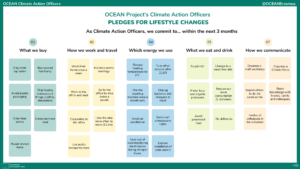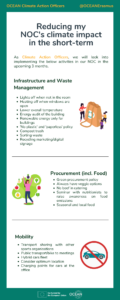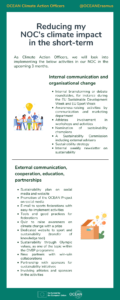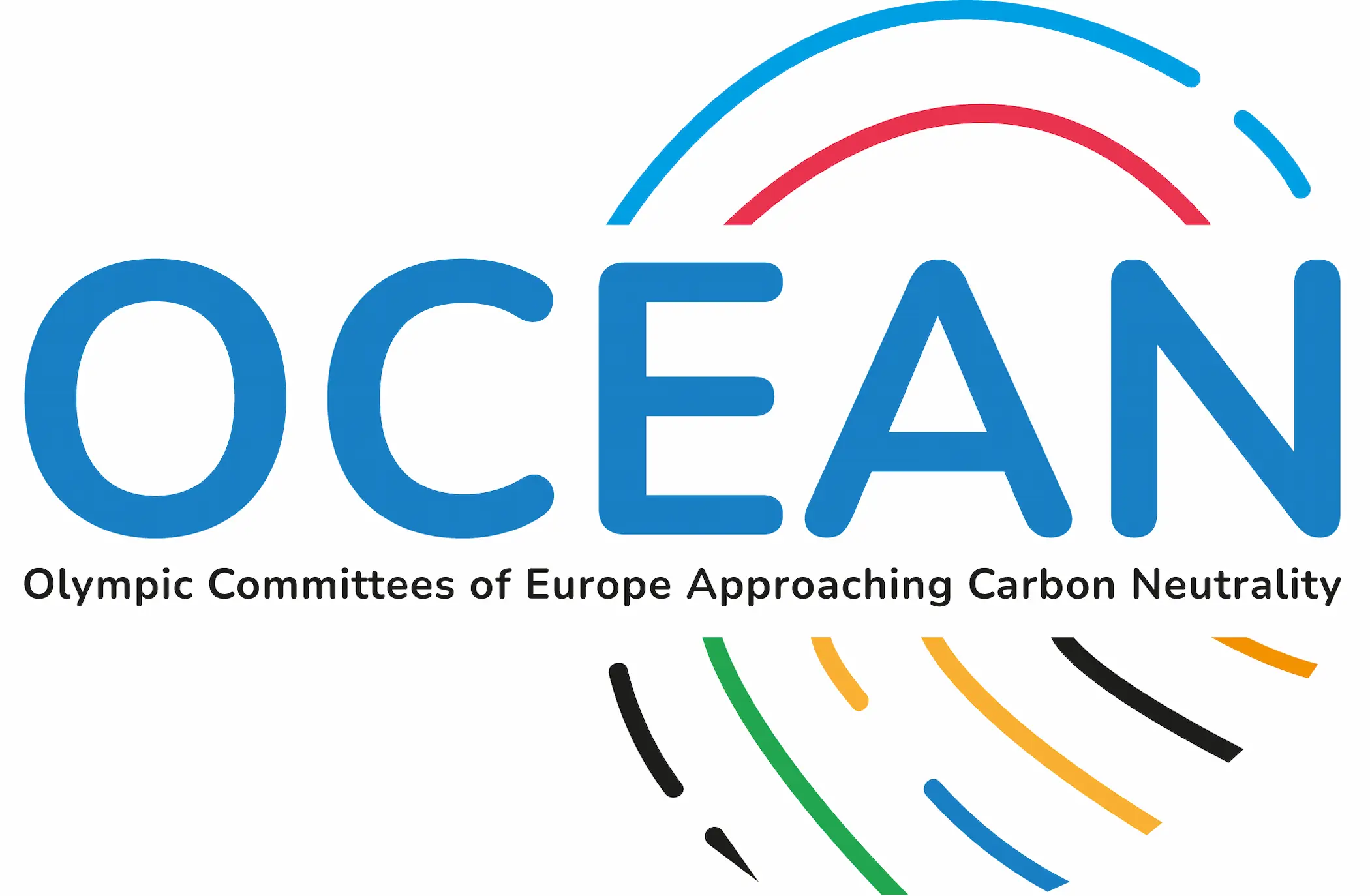Following the Kick-off meeting, the 18 Climate Action Officers attended their first session of the ‘Climate Action in Sport’ Training Course of the OCEAN Project in Brussels.
For two days, the Climate Action Officers participated in interactive workshops on climate change and sport, and heard presentations from speakers engaged in the green transition of sport.
🔹 Tobias Wagner, Researcher at the Öko-Institut, introduced the German National Olympic Committee’s carbon footprint measurement process and offered an introductive course to climate change.
🔹 Isabelle Jean, Director of the Mobilisation Unit at WWF France, presented the study "Climate change: The world of sports at +2°C and +4°C" and showed how sports practices and infrastructure are and will be impacted by climate change.
🔹 Julie Duffus, Sustainability Senior Manager at the International Olympic Committee (IOC), presented IOC’s climate reduction plan as well as the United Nations Sports for Climate Action Framework as a practical way for National Olympic Committees (NOC) to engage more towards sustainability. She also focused on the importance of NOCs leadership’s commitment and the necessity to determine the scope of actions as the two main first steps of any strategic approach to sustainability.
🔹 Fabrizio D'Angelo, Sustainability Manager at the IOC, presented the IOC’s carbon footprint and provided some guidance on NOCs carbon footprint measurement, based on the GHG Protocol Standard and the3 scopes system.
As part of the interactive workshops, Climate Action Officers took part in the “Climate Fresk”, a participative game facilitated by the EOC EU Office, and worked together in groups on concrete actions that they could implement as individuals, as well as NOCs. The following questions were tackled: what needs to be done, and can how NOCs proceed?
These collaborative sessions led to very promising pledges and ideas of action at both individual and organisational levels. To know more, please see the figures below.
The Training Course will be organised in 5 modules between now and the end of the carbon footprint measurement process in December 2024.
Module 2 of the Training Course for Climate Action Officers will take place online from the 18th to the 21st of April 2023.
The OCEAN Management Team congratulates all 18 Climate Action Officers for their commitment to making our sport more sustainable!




